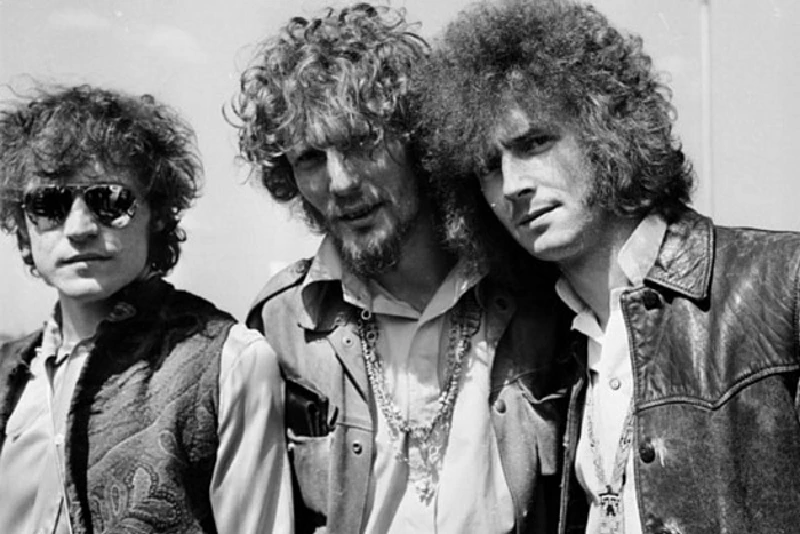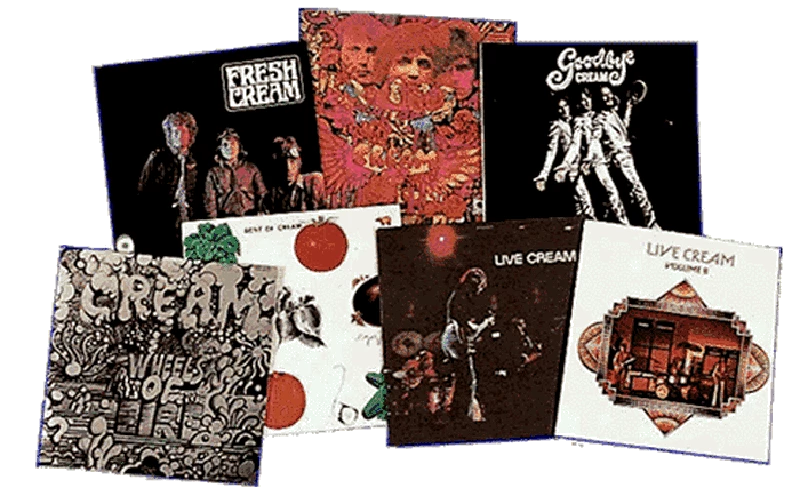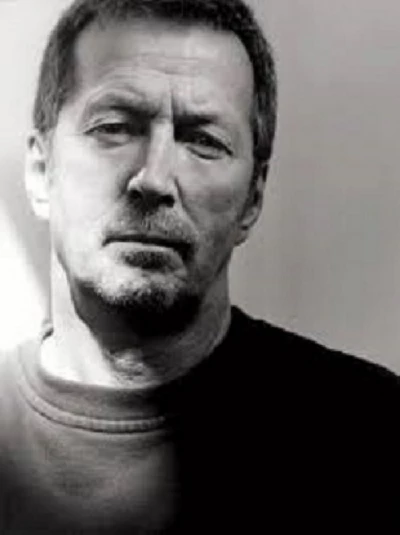Cream - Profile
by Lisa Torem
published: 19 / 6 / 2015

intro
Lisa Torem reflects on the short but prolific career of 60's supergroup Cream, who have just ahd most of their work released in a new vinyl box set
British super trio Cream formed in 1966 and consisted of bassist/singer Jack Bruce, drummer Ginger Baker and guitarist/singer Eric Clapton. During their relatively short stint, they were immensely prolific and inspirational, igniting the fires of Jeff Beck, Led Zeppelin, Rush, Yes and other rock entities. They released four studio albums, four live albums and eleven compilations (mostly completed after the band’s demise). What made them unique? Cream was a fusion of American blues, hard rock and psychedelia. They enjoyed experimentation and would gauge their recordings by the audience reactions. They knew their strengths and explored the range of their respective instruments. Bruce had an unparalleled ear for melody, which he tastefully exploited with his voice and bass. With poet Pete Brown, he came up with the bulk of the originals, using history, politics and pop culture as a muse. Baker came to the band already grounded in the polyrhythms of jazz. He had already mastered the art of switching gears musically, and he could do this with a cavalier wave of the brush or seemingly bypass the backbeat and return full force with a fascinating roll. He was one of the first rock drummers to record extended solos. Clapton’s solos were passionate and very melodic. He liberally used the wah wah pedal to ring out key tones. Although he was initially reluctant to sing, he would ultimately play and sing and receive critical acclaim. The following albums will be available in a vinyl box set format, 'Cream: 1966-1972'. The collection includes live, original and cover tunes and features their greatest hits as well as a few which fell under the radar. 'Fresh Cream' (1966) Their first album, ‘Fresh Cream’ (1966) achieved US Gold status. It included blues staples: ‘Rollin’ And Tumblin’, ‘Spoonful’ (Willie Dixon), ‘Four Until Late’, ‘I’m So Glad’ and ‘Cat’s Squirrel’. Remaining songs were written by Jack Bruce and poet Peter Brown. At this early stage, the band had not yet discovered the hippie movement; youth who loved and appreciated extended instrumental solos, which would become the hallmark of their live performances. ‘Toad’ included one of rock’s first drum solos. The auto inspired N.S.U. opens and is loaded with bright harmonies, dynamic fills and stoner electric guitar solos, all taking place in less than three minutes. ‘Sleepy Time Time’ has an infectious groove. Clapton’s guitar oozes like freshly tapped syrup over the friendly hook. Baker and Clapton trade off well, as Bruce’s bass crawls its way to the surface. He employs much restraint/explosion in his vocal instrument, as well. ‘Dreaming’ is an underrated ballad with Everly Brothers’ style layers of vocals. A good lead in to the powerhouse ‘Spoonful’, where every note has extreme purpose. ‘Cat’s Squirrel’ is a tour de force for blues harp. ‘Four Until Late’ has a Lovin’ Spoonful vibe that’s easy to love. ‘Rollin’ and Tumblin’ remains exciting until the last draw of the harp. ‘I’m So Glad’ is excellent but pretty standard at this point, whilst ‘Toad’ stuns, with its raw instrumental energy and nuance. 'Disraeli Gears'(1967) On this recording, the band displayed a greater deal of confidence in their original works. It was produced by Felix Pappalardi and recorded in New York. Everything from the psychedelic packaging to the blues/rock/mythological themes smacked of an ahead-of-its-time oeuvre. Ironically, some of the studio material came about because of exhaustion. A haggard Bruce came up with the lyric, “It’s getting near dawn,” as he peered at the sun, creeping through the window after an all night session. (He had also come up with a catchy line on his double bass.) Brown replied, “When lights close their tired eyes.” ‘Sunshine of Your Love’ would become one of their most popular and widely covered hits. Also, the band was now becoming more and more selective about presenting songs to the public that lent themselves to the wild solos the audience was clamoring for. To that end, songs like ‘Mother’s Lament’, ‘We’re Going Wrong’ and ‘World of Pain’ would be cast aside, whilst ‘Strange Brew’, ‘SWLABR’ and the verbose ‘Tales of Brave Ulysses’ would go to the head of the class. Lesser known songs include ‘World of Pain’ with Bruce’s soaring falsetto reigning, swaggering ‘Blue Condition’ and ‘We’re Going Wrong’, where Bruce puts you on the edge with his pacing and the simple chords belie an intense fury and ‘SWLABR’, where Bruce, again, surprises us with his laid back approach on “so many fantastic colours” and other hippie-induced sentiments. ‘Outside Woman Blues’ is comical and catchy and ‘Take It Back’ is a delightful satire on English folk. This album contained eleven songs and achieved UK Gold status and Platinum in the US. 'Wheels of Fire' (1968) It was on this album that the band experimented with prog rock time signatures and orchestral textures. Clapton’s passionate solo on ‘Crossroads’ would be thereafter included in many “greatest guitar solo” lists. By covering Albert King’s ‘Born Under a Bad Sign’ and Howling Wolf’s ‘Sitting on Top of The World’, they remained committed to their earliest inspirations. Bruce goes inward with experimental ‘Passing The Time’: “It is a cold winter,” he narrates alongside dissonant electronics. “The snowflakes are falling,” he continues. This is a lovely and deep tale, foreshadowing his overall commitment to telling an enchanting story. The forceful riffs of ‘As You Said’ are heady and folky, too. The melody is free floating. ‘Pressed Rat and Warthog’ is spoken word done with a whimsical flair. ‘Those were the Days’ and ‘Deserted Cities of the Heart’ explore distant lands and memories in a meaningful manner, whilst ‘Train Time’ skids down the smoldering blues harp third rail with lots of class. 'Goodbye' (1969) This album was actually released after the band broke up, due to intense quarreling and contrasting perspectives on what kind of material to release. It included live performances from Los Angeles and new studio delights, like ‘Badge,’ which was a co-write between Clapton and George Harrison (who also contributed rhythm guitar tracks and, because of recording conflicts, could only be credited using a pseudonym.) This song features a glorious mix of riffery and Bruce’s voice comes off as angelic as humanly possible. Unfortunately this bliss is short-lived at a mere two-and-a-half minutes long. You get to hear more ‘Politician’ and ‘Sitting on Top of the World’, songs that never wear out their welcome because they’re so well structured and offer such opportunity for extended solo and excitement. And you get to hear even more screaming guitar in ‘I’m So Glad’ at a little over nine minutes. ‘Doing That Scrapyard Thing’ seems out of place on this album, but the keyboard-driven tune is still entertaining. It’s a coming-of-age story about an inventive kid and Bruce is the naughty schoolboy. He does lots of fun things with that voice. ‘What A Bringdown’ features more keyboards. It’s a crazy jumble of phrases and random rhythms. Although it’s impressive that the band put together such a diverse mix, you can sense that the end was near and that they just wanted to get on with it and explore their own paths. Their final performance occurred in Rhode Island, November 4, 1968 on their American leg and on 25 November in London. 'Live Cream' (1970) This album contained ‘N.S.U.’, ‘Sleepy Time Time’, ‘Lawdy Mama’, ‘Sweet Wine’ and ‘Rollin’ And Tumblin’. You really get your money’s worth with this line-up and you also get to experience the trajectory that made Cream the great band it was: there’s lots of deep instrumental savvy, roots and Bruce’s marvellous ability to flex his vocal muscles in a multitude of ways. It is heavy on the blues, so if that’s not your thing, stay away. 'Live Cream Vol. II' (1972) This album contained ‘Deserted Cities Of The Heart,’ ‘White Room,’ ‘Politician’, ‘Tales of Brave Ulysses’, ‘Sunshine Of Your Love’ and ‘Steppin’ Out’. If you are the more cerebral Cream fan, the one who enjoys sitting back and letting intelligent lyrics wash over you as you sip your fine wine, you will really enjoy this album. At this point, the true fan has these familiar hooks and riffs branded into his/her soul, but hearing it without the studio entrapments and experiencing the raw, live energy can’t be beat. It was 1993 when Cream was inducted into the Rock and Roll Hall of Fame. After their break-up, the individual members branched out into many other solo and collaborative projects. It was shortly after Jack Bruce released an exciting new album that he unexpectedly passed away and is greatly missed by the world at large. Cream’s short but incredible contribution to rock is well documented in this valuable collection. There will never be a super group like them again, so cherish the memories.
Band Links:-
https://www.facebook.com/pages/Cream-Band/634339296602375Picture Gallery:-

most viewed articles
current edition
Carl Ewens - David Bowie 1964 to 1982 On Track: Every Album, Every SongVisor Fest - Valencia, Spain, 26/9/2025...27/9/2025
Editorial - July 2025
Colin Blunstone - Thalia Hall, Chicago, 16/7/2025
John McKay - Interview
Billie Eilish - O2 Arena, London, 10/7/2025
Hothouse Flowers - Photoscapes
Bathers - Photoscapes 2
Bathers - Photoscapes 1
Cleo Laine - 1927-2025
previous editions
Heavenly - P.U.N.K. Girl EPBeautiful South - Ten Songs That Made Me Love...
Trudie Myerscough-Harris - Interview
Pixies - Ten Songs That Made Me Love...
Boomtown Rats - Ten Songs That Made Me Love....
Fall - Hex Enduction Hour
Sam Brown - Interview Part 2
Doris Brendel - Interview
Jimmy Nail - Interview
Blues and Gospel Train - Manchester, 7th May 1964
most viewed reviews
current edition
Amy Macdonald - Is This What You've Been Waiting For?Sick Man of Europe - The Sick Man of Europe
Alice Cooper - The Revenge of Alice Cooper
Phew, Erika Kobayashi,, Dieter Moebius - Radium Girls
Lucy Spraggan - Other Sides of the Moon
Blueboy - 2
Cynthia Erivo - I Forgive You
Davey Woodward - Mumbo in the Jumbo
Lapsley - I'm a Hurricane, I'm a Woman In Love
Philip Jeays - Victoria
related articles |
|
Eric Clapton: Interview (2014 |

|
| In this archive interview Eric Clapton talks to Nick Dent-Robinson about his autobiography and long musical career |
| Jack Bruce: Profile (2014) |
| Robert 'Throb' Young: Profile (2014) |
| Ginger Baker’s Jazz Confusion : Live Review (2014) |
| Jack Bruce: Interview (2014) |
Pennyblackmusic Regular Contributors
Adrian Janes
Amanda J. Window
Andrew Twambley
Anthony Dhanendran
Benjamin Howarth
Cila Warncke
Daniel Cressey
Darren Aston
Dastardly
Dave Goodwin
Denzil Watson
Dominic B. Simpson
Eoghan Lyng
Fiona Hutchings
Harry Sherriff
Helen Tipping
Jamie Rowland
John Clarkson
Julie Cruickshank
Kimberly Bright
Lisa Torem
Maarten Schiethart